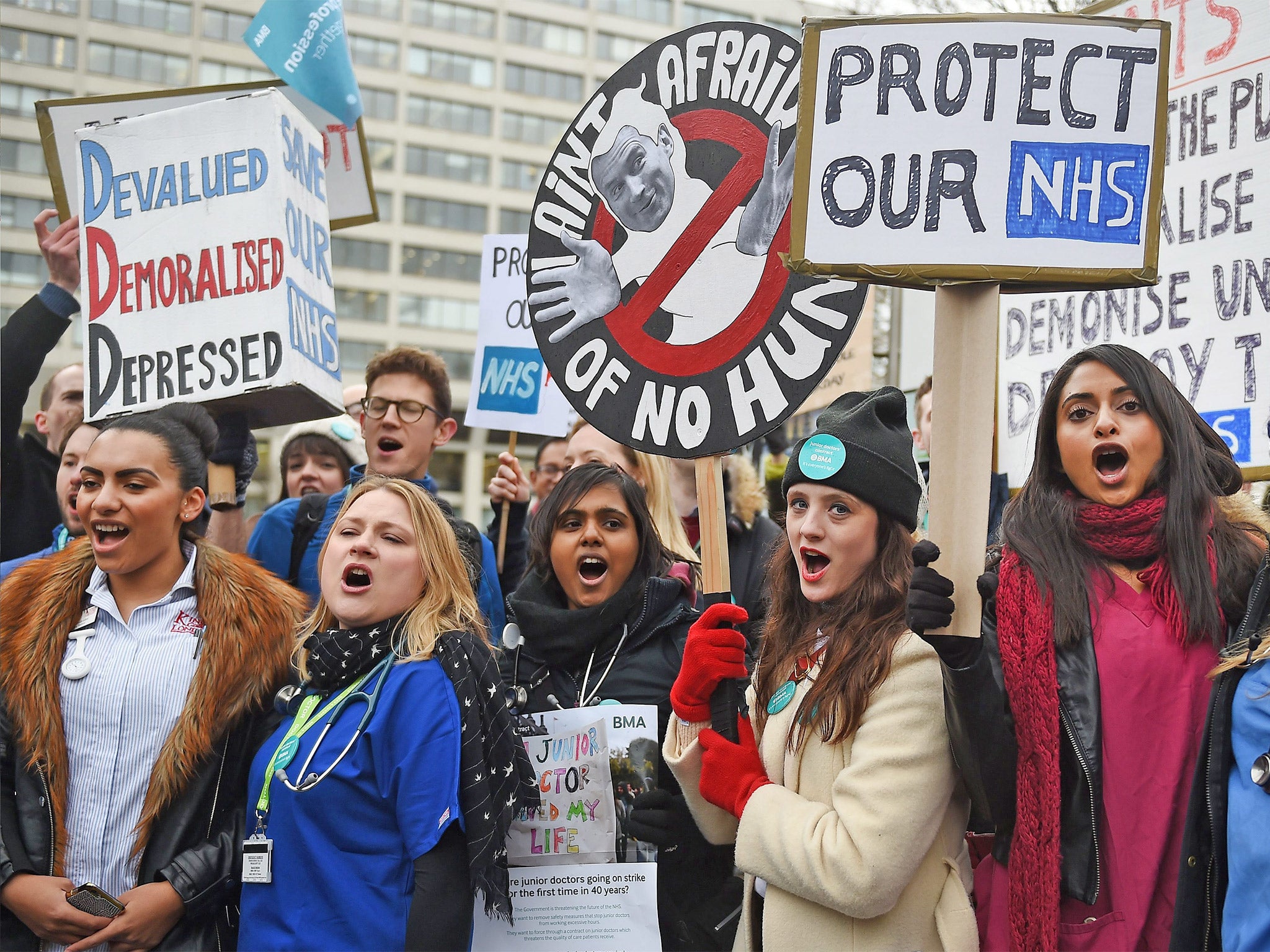Junior doctors' strike: BMA offered last-minute improved deal hours before action commenced
Hospital chief leading negotiations for Government offered terms addressing issue of Saturday pay

The British Medical Association was offered a last-minute, improved contract deal, hours before commencing strike action, it has emerged.
Sir David Dalton, the hospital chief executive leading negotiations on behalf of the Government, offered terms addressing one of the last out-standing issues – Saturday pay – offering junior doctors who work one in four weekends or more, a premium rate for every Saturday they worked.
The Government had previously sought to redefine Saturday as an ordinary working day. The new offer, which Sir David’s letter said would see the majority of junior doctors who work Saturdays getting a premium rate, was sent late on Tuesday.
However, the BMA, which was given until 3pm to reply, appeared to reject the deal in a letter to the Health Secretary, Jeremy Hunt, in which their junior doctor chairman Dr Johann Malawana offered an alternative settlement, based on one the BMA proposed in December, which would reduce the basic pay rise offered to junior doctors in exchange for better out-of-hours rates.
Sir David’s letter stated that without assurances from the BMA by the 3pm ultimatum, he would advise Mr Hunt that “we would have reached the end of the road in relation to the likelihood of reaching a negotiated settlement”.
The terms, and the BMA’s apparent rejection of them, appears to pave the way for the Government to impose the contract on junior doctors – a step previously described by Mr Hunt as his “nuclear option”, and which would likely face strong resistance from junior doctors.

As junior doctors completed the second strike of their long-running dispute, Chris Hopson, chief executive of the NHS Providers body, said it would be “legitimate and sensible” for the Health Secretary to consider imposing the contract, if the BMA did not accept “a fair and reasonable offer”.
Hospital managers have told the Government they need to know what kind of contract they can present when offers are made in May.
Danny Mortimer, chief executive of the NHS Employers organisation, the arms-length body negotiating on behalf of the Government, said that settling a new contract had already taken four years and “can’t go on forever”.

Thousands of junior doctors took part in Wednesday's strike, with more than 160 picket lines across England. According to NHS figures, 43 per cent of junior doctors, out of a possible 26,000, attended work on Wednesday, although this included those in emergency roles, who did not have a mandate to strike. Nearly 3,000 non-urgent operations were cancelled due to the action.
Dr Malawana said the Government had rejected “a fair and affordable proposal put forward by the BMA” and warned that the introduction of the new contract “could see many junior doctors voting with their feet”. Mr Hunt insisted the strike had been “very damaging” and Downing Street sources said the BMA would not be given “a veto” on the new contract.
Saturday pay is the last major issue in the contract dispute, but both sides are extremely reluctant to yield ground, with the eventual outcome likely to set a precedent for contract offers to other NHS staffing groups. NHS Providers, in its submission to the independent pay review body last year, said that, regardless of the Government’s focus on improving weekend care, reform of doctors’ contracts is required to help create an “affordable workforce”.
Meanwhile, it emerged the membership body for junior surgeons has written to the NHS’s training authority warning of “grave concerns” at cuts to training posts for medical specialties. Some specialties have seen significant cuts with training places for core surgery reduced by 14 per cent, according to leaked figures.
“We feel compelled to voice significant concern regarding the ability to safely staff already under-filled surgical rotas,” Rhiannon Harries, president of the Association of Surgeons in Training, wrote to Health Education England, in a letter seen by The Independent.
Join our commenting forum
Join thought-provoking conversations, follow other Independent readers and see their replies
Comments
Bookmark popover
Removed from bookmarks